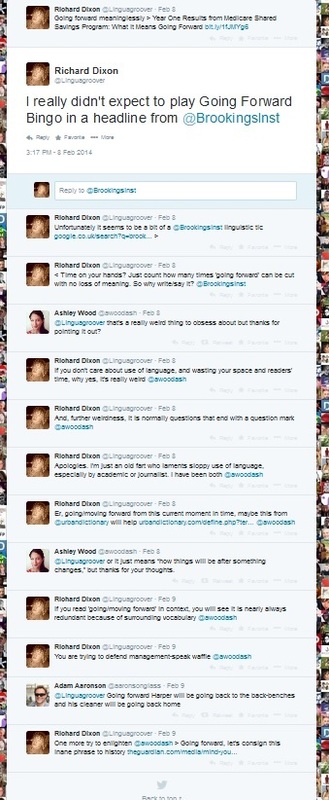You really wouldn't want to hire me for financial advice, as I'm almost a complete klutz in the investment department. In turn, I don't expect too much from business types when they try to write. They pay me to make their jargon-rich nonsense fit for human consumption - and so perhaps more likely to persuade someone to buy their message and their brand or product.
What is almost unforgivable is when people who should know better - journalists, broadcasters, lawyers, politicians, advertising copywriters and academics - insist on persisting with the linguistic redundancies of the commercial classes.
I have a number of bêtes noires, and among them are "going forward" and "moving forward". The redundant use of these phrases has reached global epidemic proportions.
They do not need to be banned. They are perfectly acceptable, for example, in commentaries for any sport where territory is gained with possession of the ball or its equivalent, such as football ("soccer"), rugby union, rugby league, (field) hockey, (ice) hockey and American football (ritualised violence with side-effects including head injuries, buggered-up knee ligaments and domestic abuse).
That leaves a vast arena where permanent exclusion of these management-speak favourites is essential. In a metaphorical sense, "going forward" and "moving forward" imply something that is going to happen. The future is being talked of. So, logically, they become redundant when, say, a tense points to the future or when a noun or verb - plan, prospect, hope etc - looks ahead.
I had a bizarre exchange on Twitter a few months ago (below) when I tried to make this rather simple point to someone at the illustrious Brookings Institution think tank. (This was, by definition, a public conversation, so I have no hesitation in reporting it here.)
I had no idea that, more than 30 years after I bailed out of academe into what many would consider to be the more turbulent and intellectually shallow waters of journalism, my mental flabber would be somewhat gasted.


 RSS Feed
RSS Feed


